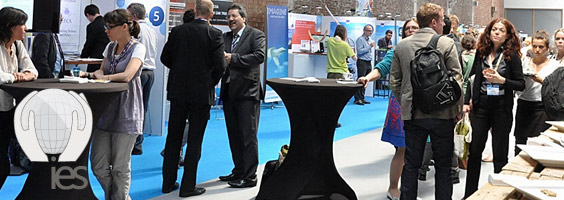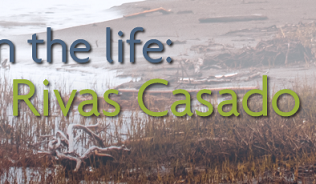As part of our commitment to the training and continuous professional development needs of our members we will be running an expanded events programme in 2015. In April we are running or supporting six fantastic environmental events.
Locally ‘Green’: Does it Make a Difference? by Professor Carolyn Roberts
Gresham College London, Thursday 2nd April 6-7pm
A free public lecture by Professor Carolyn Roberts, Frank Jackson Foundation Professor of the Environment and IES Vice President. Three initiatives that are representative of many schemes that aim to reduce local and global environmental footprints will be examined. The Mayor’s annual prize for students to suggest ways of assisting the metropolis to minimise its carbon footprints; the Transition Town network that facilitates local initiatives; and the National Industrial Symbiosis Programme aimed at encouraging businesses to work together to reduce waste, share resources and reuse materials all generate ideas that can be shared widely.
Greenfleet Scotland 2015
Royal Highland Centre, Edinburgh, Friday 10th April, 9am-4pm
GreenFleet Scotland is the fleet event north of the border, designed to demonstrate the viability of low emission, plug-in, hybrid and electric vehicles to organisations that want to improve the efficiency of their fleet and transport operations and to address poor air quality caused by emissions from road transport.
EVOLUTION Scotland
Royal Highland Centre, Edinburgh, Saturday, 11th April, 9:30am-4pm
Interested in electric vehicles and wondered what it’s like to drive an electric vehicle (EV)? This motor show will be showcasing the latest in technology and innovation whilst striving to guide, advise and educate you, on how to travel sustainably with low carbon, electric or hydrogen vehicles.
South East Group Event - A Silent Witness: Murder and the application of Environmental Science
Oxford Brookes, Oxford, Tuesday 14th April, 4-6pm
The bodies of murder victims, either whole or in pieces, often finish up in rivers and canals. For the last fifteen years or so, Carolyn Roberts has worked as an Expert Witness with various UK police forces to apply the principles of environmental science in murder investigations. In these most tragic and gruesome settings, environmental science can help to identify where bodies have come from, or gone to. Drawing on a number of macabre case studies, the talk will take you from the details of particular cases to the general principles of tracing bodies. Probably not for those of a nervous disposition, but of guaranteed interest to the curious.
Launch of the EPUK/IAQM Planning Guidance
London, Wednesday 15th April, 1-4pm
The launch of guidance from Environmental Protection UK (EPUK) and the Institute of Air Quality Management (IAQM) on dealing with air quality within the land-use planning and development control processes. The guidance sets out why air quality is an important consideration in many aspects of local authority spatial planning. It emphasises how good spatial planning can reduce exposure to air pollution, as well as providing other benefits of well-being to the wider community.
Growth, Skills and Green Employment for a Low Carbon Energy & Resource Efficient Economy
Barcelona, Friday, 17th April 9:30am - 12:30pm
The Europe 2020 Strategy identifies the transition towards a green, low carbon, energy and resource-efficient economy as essential to achieve smart, sustainable and inclusive growth. The EU has implemented a number of policies and strategies aimed at supporting the shift towards a resource efficient and low carbon economy, while strengthening the EU's competitiveness. One of the most significant initiatives is the 2020 Climate and Energy Package which sets targets to be reached by 2020 for greenhouse gas emission reductions, renewable energy sources and improved energy efficiency. A gradual shift towards an energy and resource-efficient circular economy will increase competitiveness and boost economic growth, while creating more and better jobs in the EU. Saving, re-using and recycling materials will support the future competitiveness of successful companies.



